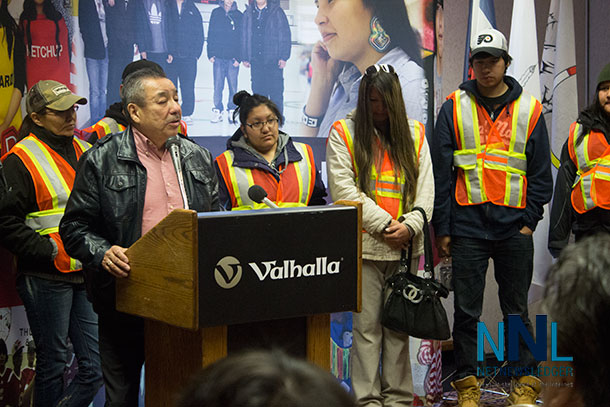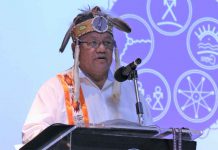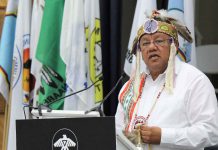
Legal System Needs Long-Term Change
THUNDER BAY – LEGAL – Ontario Regional Chief Stan Beardy says there needs to be long term changes to legislation and policies within the Ontario justice system in light of yesterday’s Supreme Court ruling. “Ontario needs to recognize the broader systemic issues that were identified in the recommendations from the First Nation Jury Committee led by Justice Frank Iacobucci, and the impacts of Ontario’s justice system on First Nations,” said Regional Chief Beardy. “There needs to be long-term changes to legislation and policies and we are prepared to work with Ontario to identify areas where the challenges lay. If necessary, we are prepared to bring the conversation to the Council of the Federation and engage with other Premiers.”
Regional Chief Beardy and members of the Political Confederacy met with the Attorney General Madeleine Meilleur last week and secured a commitment to meet regularly with the Attorney General to examine First Nation justice priorities.
“Regular meeting to discuss the justice system and how First Nations participate is a good first step, however, there must be more. First Nations in other provinces and within the U.S are working in collaboration with governments to reconcile the fact that Indigenous Nations operated their own justice systems, and as a result, are respecting the jurisdiction that they have over their citizens in this area,” said Regional Chief Beardy
In October, Ontario appealed a 2013 decision from the top court that quashed a manslaughter conviction for a First Nations man because of under-representation of aboriginal people in the jury process. The case involves Clifford Kokopenace, whose murder trial took place in Kenora, Ont., but nobody on the jury that convicted Kokopenace lived on any of 46 First Nations in the district.
First Nation leaders hoped the Supreme Court would clarify the expectations for court officials to include First Nations people who live on-reserve, in the pool of potential jurors. The same list is used for criminal trials and coroners’ inquests.
“The focus needs to be on changing the way that First Nations communities and citizens participate in the justice system. It has to allow those First Nations citizens who want to participate in juries to do so, and this cannot be done under threat,” said Regional Chief Beardy. “We have to find a balance to be able to work together to balance all our rights.”





